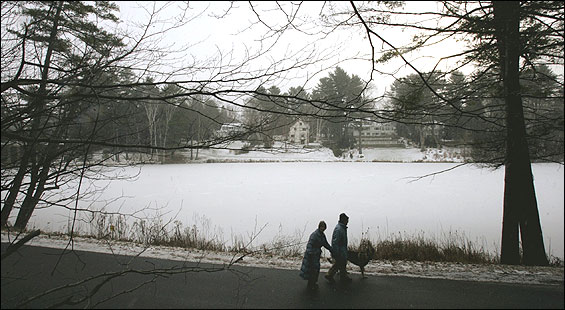
I’ve recently realized there is a cultural disconnect between the United States and Argentina regarding houses and homes. In Argentina you have one house, and you live there until you pass it on to your children. This is how it was in my own family, as my maternal grandparents passed their home down to my parents. In the United States, on the other hand, houses are bought and sold like vehicles. People move much more freely. I’ve moved so many times: first from Buenos Aires to Michigan, three times in Ann Arbor and then to Hanover where I’ve also moved three times. With the Spanish department’s Foreign Study Program, I’ve spent three months in Puebla, Mexico, three in Madrid and Barcelona, Spain, and I’ll be back in Buenos Aires in the spring. It’s a wonderful experience but sometimes I feel like I don’t have a house.
Right now, home is where my wife is. We immigrated together, and our relationship has grown even stronger since then. I have friends and a great community in the United States, but she’s my family. Whether we’re in Argentina, the United States, or in Europe, we try and recreate the idea of ‘home’. For us, it’s more than just spatial, which is how most people think about homes. We’ve moved so many times that ‘home’ is more a series of performative experience than something that happens in a particular space.
I don’t think we want to stay in Hanover forever. Argentina is always in our minds, and on some deeper level we hold onto a hope of returning. But I came here to pursue an education and to better my career, and I will continue along that path as long as it remains a viable option. Deciding whether to stay or return is not so much a question of place but of opportunity. For example, I recently visited Peru, and I loved it. If someone at a university there had asked me, “Would you like to work in Peru?” I would respond overwhelmingly yes. My wife and I came to Hanover so we could teach and pursue our research, and I’m happy as long as we’re together.
This concludes the Oral History. Click here to see the framework of Cristian’s interview.

